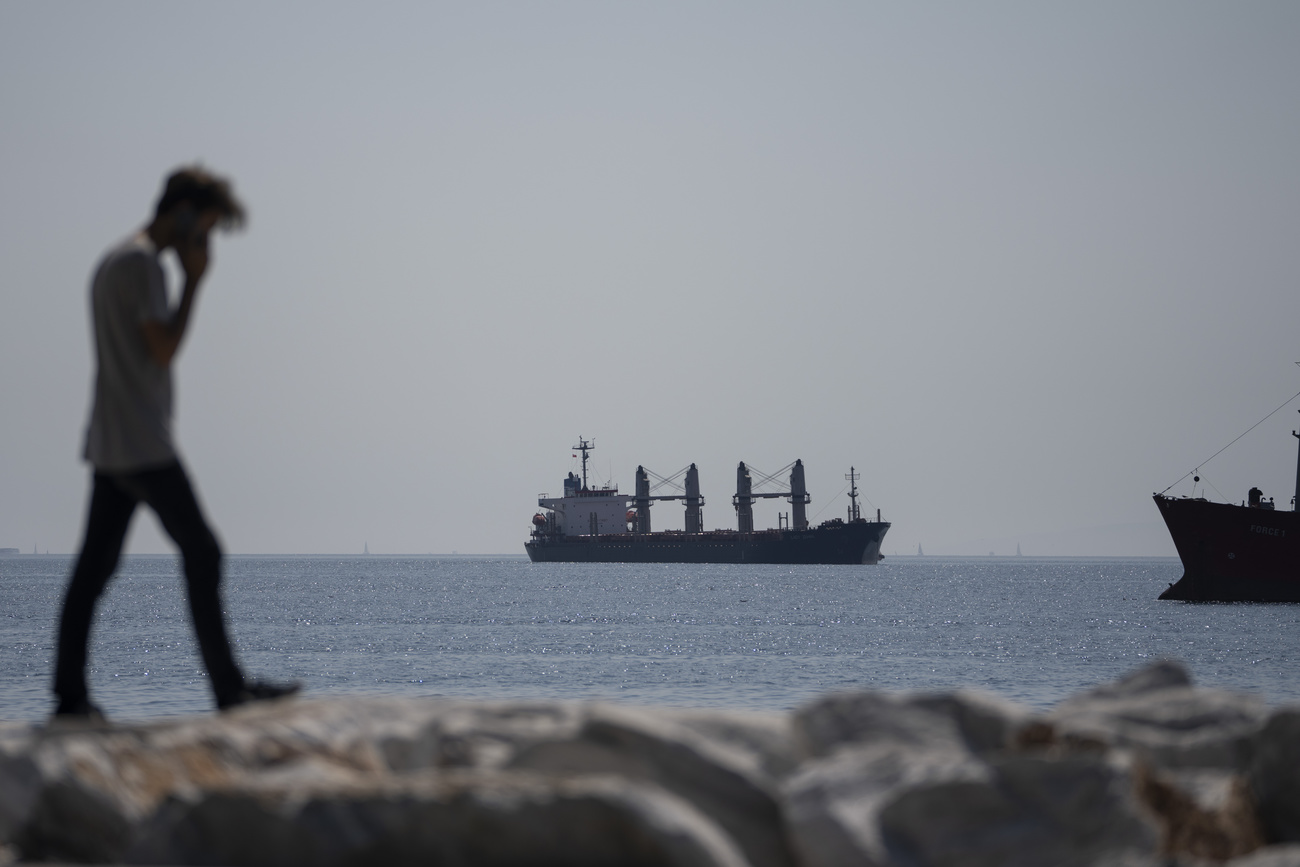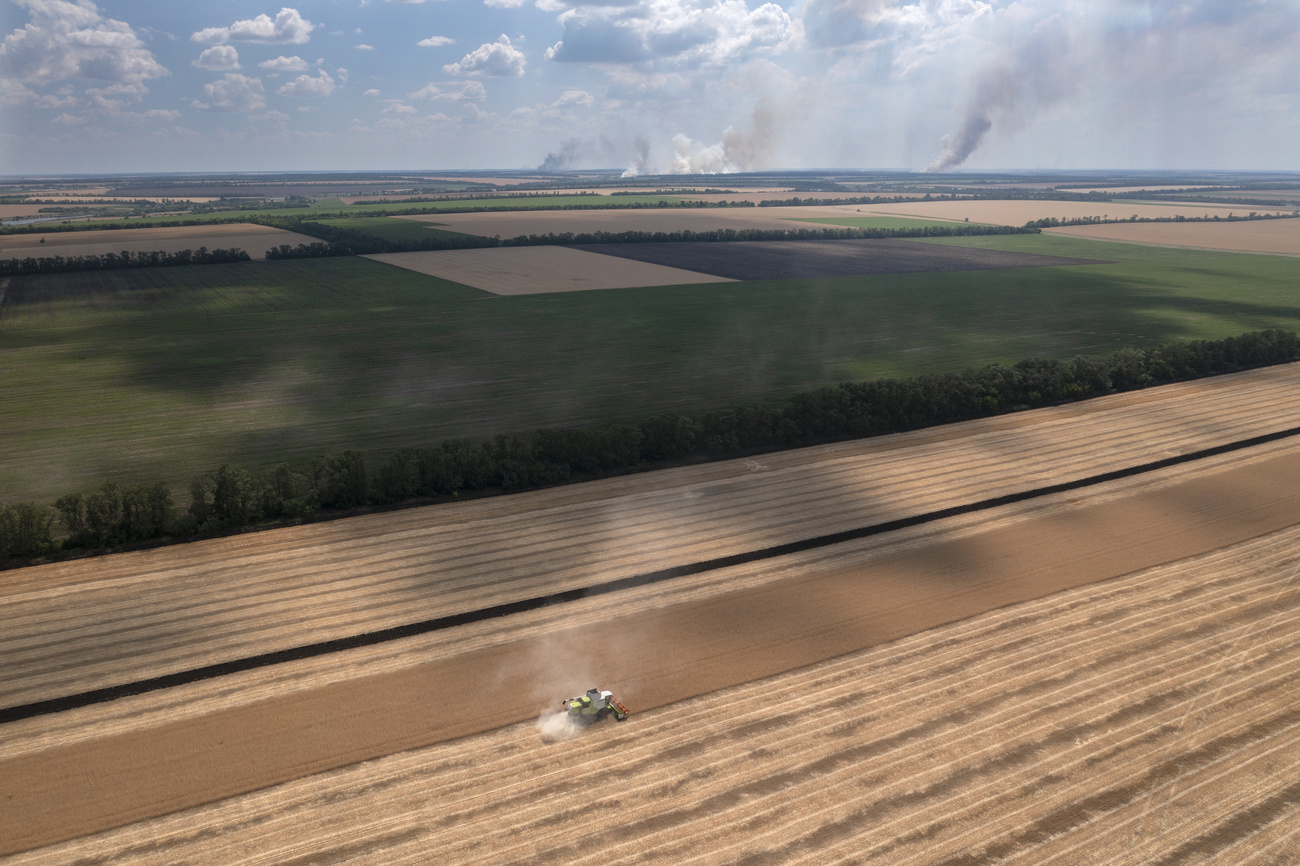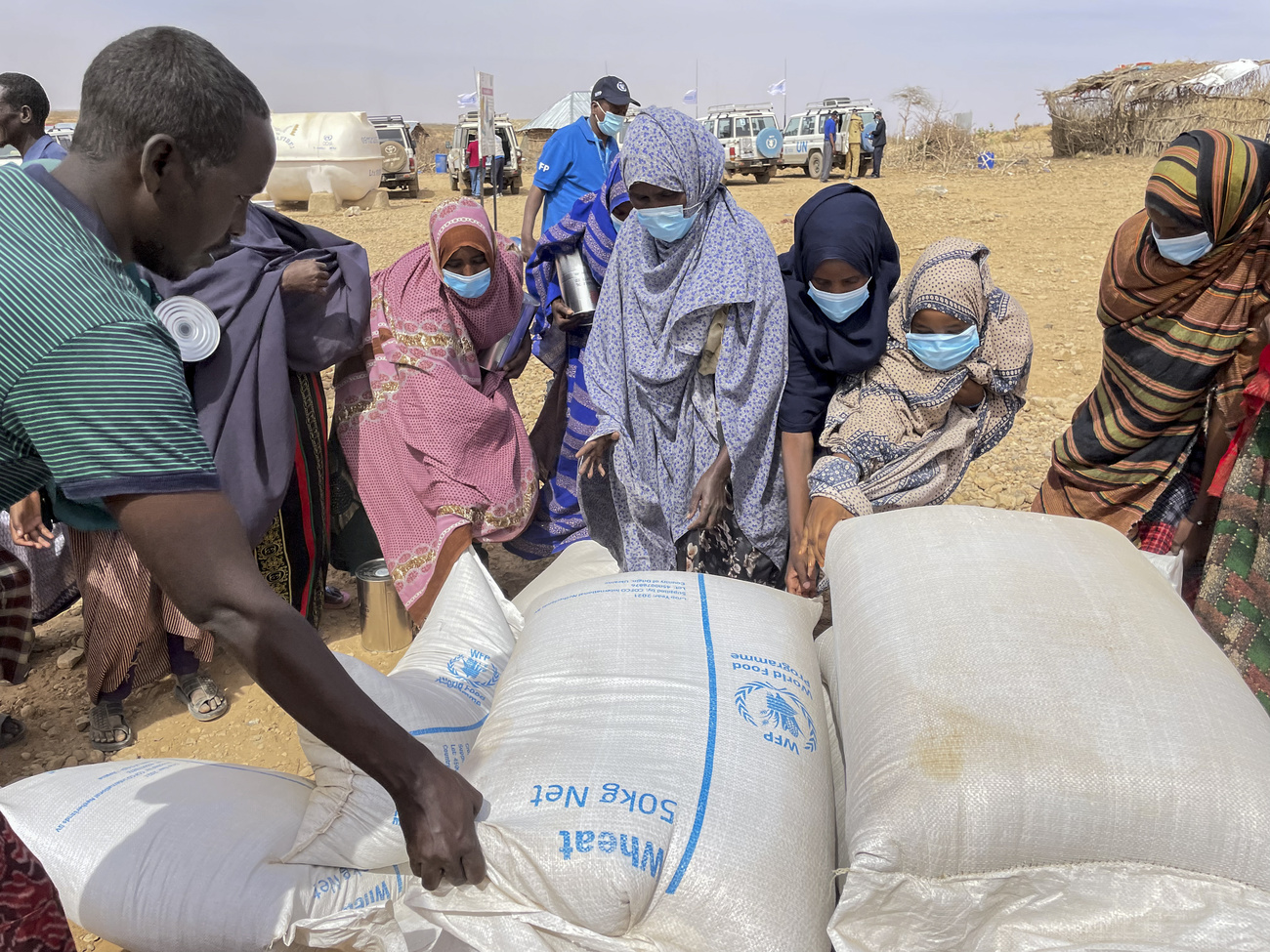Extended Ukrainian grain deal offers temporary relief to food crisis

A deal allowing food exports from Ukrainian ports that is key to easing the food crisis has been extended despite Moscow’s threats to opt out. The UN says Russian fertiliser exports stuck due to trade and financial sanctions must now be unblocked.
The United Nations announced on Thursday that the deal allowing Ukraine to export its grain through the Black Sea would be extended for another four months.
The agreement – called the Black Sea Grain InitiativeExternal link – brokered by the UN and Turkey had been struck on July 22 after months of behind-the-scenes negotiations. The deal was concluded for an initial period of 120 days (until November 19) by the end of which it would automatically be extended unless Russia decided otherwise.
Experts say the agreement is essential to curb the global food crisis, enhanced by the war in Ukraine, the Covid-19 pandemic, and repeated climate shocks. Russia is the world’s largest exporter of fertilisers, and Ukraine a major grain exporter. Rising food and fertiliser prices have strangled many countries in Africa and in the Middle East that rely heavily on imports.
“The extension of the deal will improve the availability of food and fertilisers on global markets and will limit that source of uncertainty, and therefore lower prices for everyone,” says Monika Tothova, an economist at the UN Food and Agriculture Organization (FAO). “It will also ensure farmers earn an income, which will allow them to plant the next crop,” she adds.
Low global supply and high prices of fertilisers have left the UN fearing that the current food crisis could worsen next year, bringing famine to the most vulnerable countries such as Somalia, Yemen, or Afghanistan. The Black Sea grain deal has contributed to a drop in food prices after they reached an all-time high in March, according to the FAO Food Price IndexExternal link, which tracks international food prices.
Since the first shipment left Ukraine on August 3, UN recordsExternal link show that some 11.2 million tonnes of grain and other foodstuffs, mostly corn and wheat, have left Ukrainian ports. Top shipping destinations have been Spain, Turkey, and China, though vessels – including some chartered by the UN World Food Programme – have sailed to countries affected by humanitarian crises such as Yemen, Sudan, or Afghanistan.
Moscow has repeatedly complained that the UN-brokered deal had not delivered Russia’s part of the agreement. On the day the Black Sea grain deal was signed, a side-agreementExternal link between Russia and the UN was concluded. It commits the UN to supporting the export of Russian grain and fertilisers, which remain stuck due to side effects of economic sanctions imposed on Russia. The deal was concluded for a three-year period.
“Working in Russia is extremely complicated. Commodity traders are reluctant to do business in Russia, logistics are very complicated, and even if they want to do so, they must find banks that are willing to finance this, and there are none in Switzerland. And it is the same with insurers and shipowners,” says Florence Schurch, secretary general of the Swiss Trading and Shipping Association (STSA) in Geneva, where major commodity traders operate. “Grain traders hesitate to take the reputational risk of doing business with Russia,” she adds.
The extension of the deal has been welcome news for commodity traders, which were able to export more than half of the 22 million tonnes of grain that had been stuck in silos near Ukrainian ports after the start of the war. Kyiv had hoped the deal could be renewed for another year rather than four months to ease uncertainties.
“The uncertainty is related to the war. Even if it had been extended for a year, no one can guarantee that it will still hold in a week. Things can change so quickly,” says Schurch.
Grain vs fertilisers
At the end of October, Moscow suspendedExternal link its participation in the UN grain deal after claiming Ukrainian drones had attacked its Black Sea fleet in Crimea. It however restarted its cooperation days later as the UN, Ukraine, and Turkey pressed ahead to implement the deal and allowed vessels to move forward anyway.
In an interview with Swiss newspaper Le TempsExternal link on Wednesday, Russia’s permanent representative to the UN in Geneva, Gennady Gatilov, once more expressed his country’s discontentment with the agreement. According to him, Ukrainian food exports have mostly served to finance Kyiv’s armament, not to feed the world’s hungry. Meanwhile Russia has been “left out”, he added.
As part of the deal Russia demands that it can export ammonia, an ingredient in fertilisers, via a pipeline to the Black Sea. Reuters reported that negotiations with Russia on the issue are ongoing.
Russia’s Foreign Ministry confirmed in a statementExternal link yesterday that Moscow noted some progress in addressing its complaints about Russian grain and fertiliser exports, and said it expects remaining issues to be resolved in the next four months of the deal.
Questions remain as to why Moscow has not pulled out of the deal it considers unfair. “Russia may have received some quiet assurances that the UN and European countries will push to ease blockages to Russian fertiliser exports, which was always meant to be part of the broader deal,” says Richard Gowan, UN director at the International Crisis Group, a think tank in New York. According to him, Western countries also have an interest in having Russian fertilisers available on the market, as global agriculture relies on them.
UN diplomacy
On Thursday, both UN secretary general António Guterres and Rebeca Grynspan, the secretary general of the UN Conference on Trade and Development, said the next step would be to remove obstacles to Russian food and fertilisers exports.
Discreet talks had been held at the UN headquarters in Geneva last Friday between a high-level delegation led by Russia’s deputy foreign minister Sergey Vershinin, and top UN officials, who discussed “steps taken to facilitate payments, shipping insurance, and access to EU ports for grains and fertiliser”.
But there is another reason which might have prompted Russia not to leave the Black Sea grain agreement.
“I don’t think Russia wants to look like it is starving the Global South,” says Gowan.
Since the start of the war, Moscow has enjoyed the implicit support of many African, Latin American, and Asian countries that abstained on key UN votes related to Russia’s aggression. “If Russia killed the deal now, it could face some serious diplomatic blowback from the South,” says Gowan, who adds that “keeping the deal alive is a way for Putin to reinforce his working relationship with Turkish President Erdogan, whose help he needs on the world stage”.
Edited by Virginie Mangin

In compliance with the JTI standards
More: SWI swissinfo.ch certified by the Journalism Trust Initiative












You can find an overview of ongoing debates with our journalists here . Please join us!
If you want to start a conversation about a topic raised in this article or want to report factual errors, email us at english@swissinfo.ch.